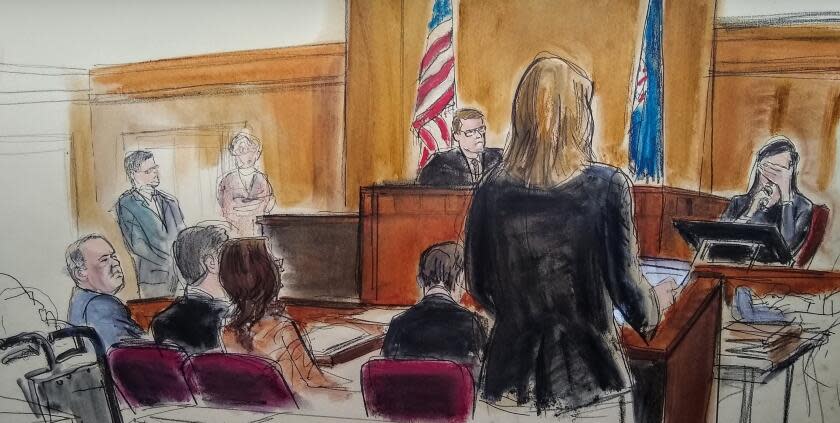Letters to the Editor: How criminal defense lawyers are also defending the Constitution

To the editor: I had a friend who was a criminal defense attorney. One of the cases was reported by the media. "What?" I asked my friend. "You are defending him?" ("Providing criminal defense is not a crime. So why do some demonize lawyers for it?" editorial, Feb. 13)
My friend said that he was defending me, assuring me that the Constitution was being used appropriately, that the police were not committing a crime, and that the prosecution was honest. He was preserving democracy.
Wow.
Some years later, a friend of mine graduated from law school and became a public defender. She quit after three years. The police lied, prosecutors lied, and she did not have the staff or the funding to provide good defense.
It is scary out there. Support the lawyers who are defending those who are innocent until proven guilty — and even when "proven" guilty, they might not actually be.
Niles Ross, Cedar Rapids, Iowa
..
To the editor: Your editorial about lawyers with unpopular clients is a helpful reminder to people that lawyers are not their clients.
Sometimes good lawyering means representing bad clients, often to vindicate constitutional principles. Most famously, the American Civil Liberties Union represented the Nazis in the Skokie, Ill., case at the U.S. Supreme Court in 1977.
But there is no universal truth here, not even among lawyers.
It is still hard to get pro bono representation for environmental cases at big law firms today, even when idealistic individuals at the firms are ready to help. For decades, this was also true for reproductive rights.
The big firms may aver that these parties are not their clients, but they do capitulate in their values and representation to their big clients. That is how the marketplace works, and the market makes the culture in big firms.
Jonathan Kaufelt, Santa Monica
This story originally appeared in Los Angeles Times.

